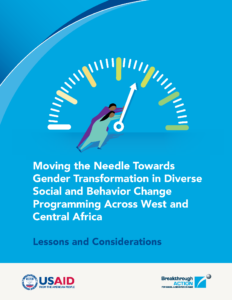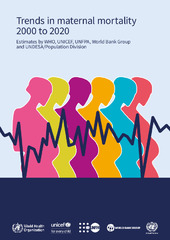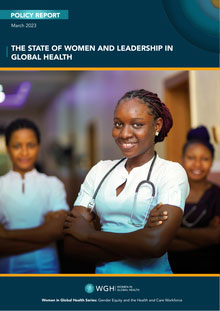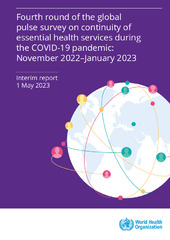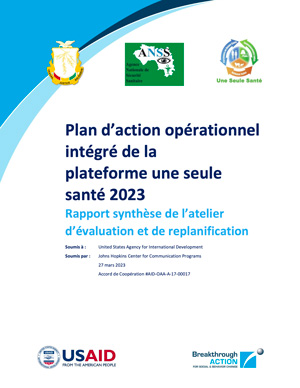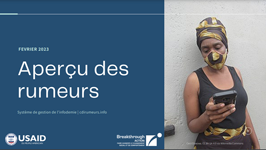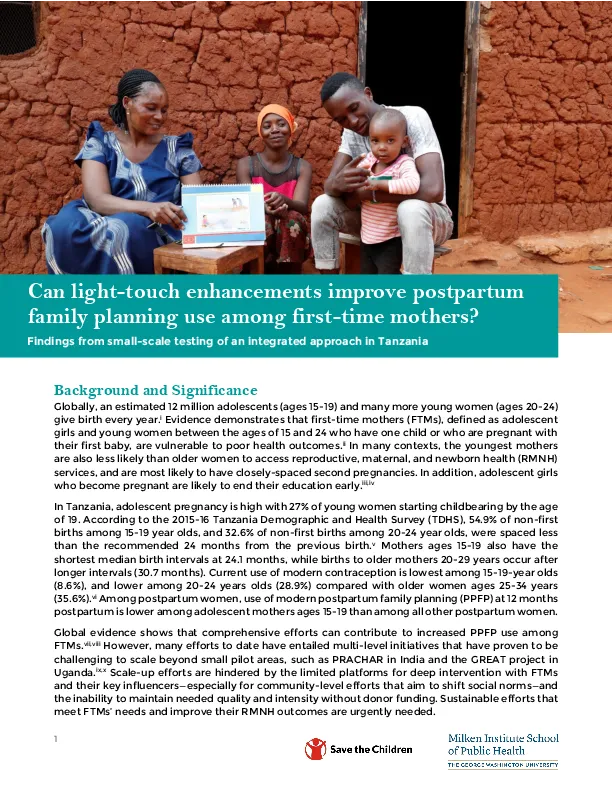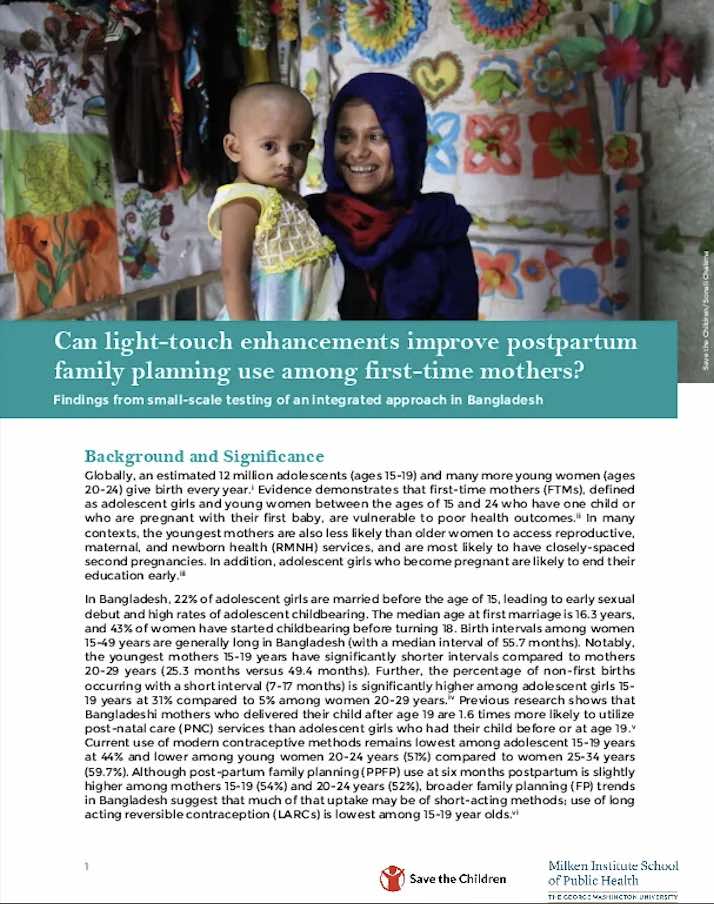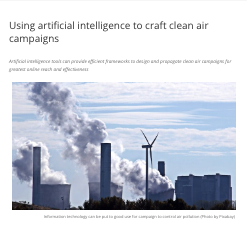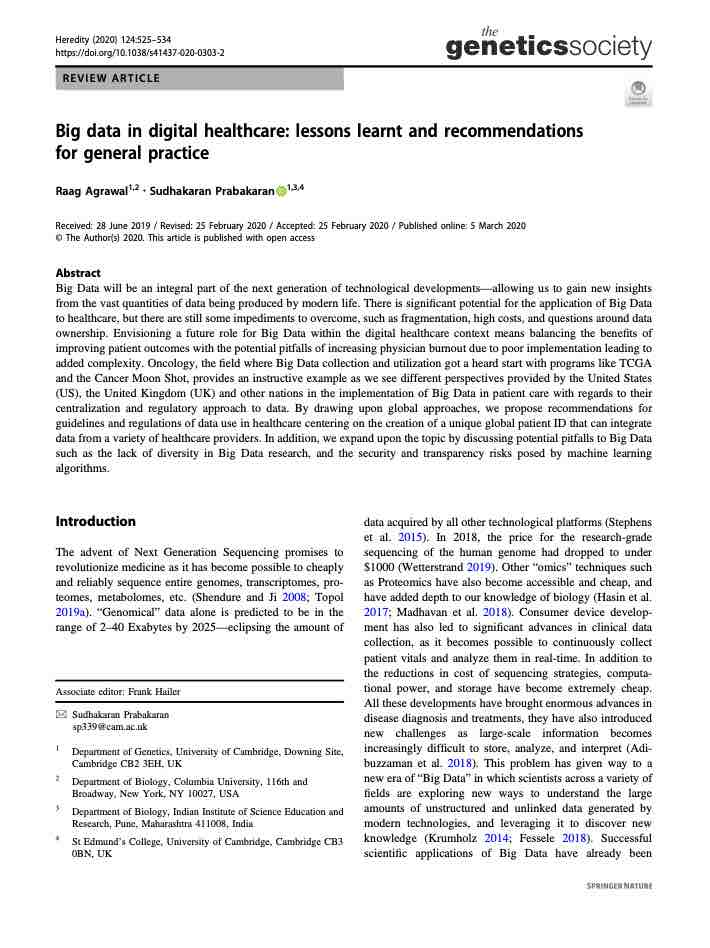Peser en faveur de la transformation des normes de genre dans divers programmes de changement social et de comportement en Afrique de l’Ouest et centrale: Enseignements et considérations
Ce rapport présente des études de cas mettant en lumière des programmes de CSC dans des pays francophones d’Afrique de l’Ouest et centrale et souligne les efforts déployés pour intégrer la dimension de genre de manière adaptée à la culture et au contexte. Elles illustrer la façon dont les programmes peuvent faire avancer les choses sur le continuum d’intégration de genre (de l’absence de distinction entre les genres à la transformation des normes de genre) et pour fournir d’importants enseignements et considérations pour éclairer des efforts similaires via Breakthrough ACTION et d’autres programmes de CSC dans le monde.
Source: Johns Hopkins Center for Communication Programs
Date of Publication: July 17, 2023

